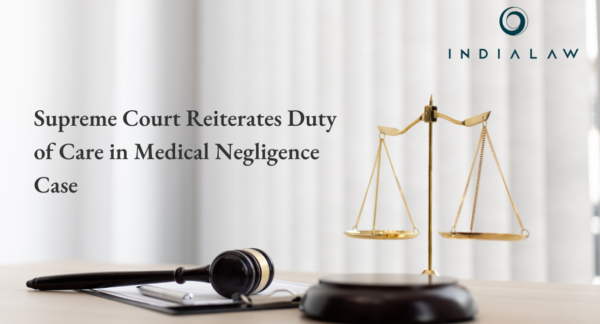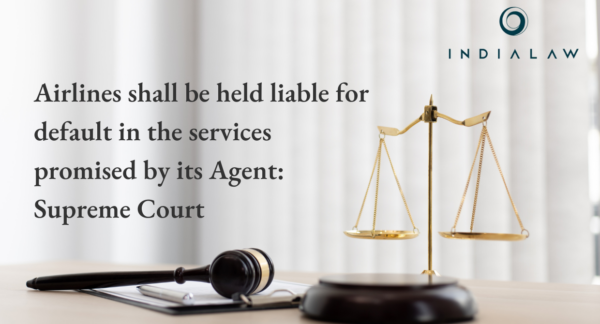Burning one’s fingers

By Dr. Subodh Sirur
On a midnight, a leading gynecologist was attending a labor case in his hospital. He was the only senior doctor present in the hospital at that time. Suddenly, a three year old accident victim was rushed in to the hospital. The child had severe brain injury. The doctor does not have the knowledge or expertise of a pediatric neurosurgeon. What the doctor should do under such circumstances? Should he refuse to attend the case on the ground that he does not have the requisite skill or knowledge to treat the patient? Or should he treat the patient using the general skill and knowledge that every doctor is expected to possess? What will happen to the doctors if something goes wrong, which could have avoided if the patient is treated by a specialist? Welcome to the dilemma of medical profession, where the above referred dichotomy between deciding whether to treat the patient or refuse to treat a patient under particular circumstances haunts every doctor.
The Indian Medical Council (Professional Conduct, Etiquette and Ethics) Regulations make it mandatory for every physician to attend the patient in case of emergency. A doctor who refuses to attend a patient in case of emergency should be liable for breach of duty of care which expected from doctor. The doctor may be also be liable for professional misconduct.
Every doctor owns a duty of care to the patient. This duty becomes more evident in the case of emergency. He is expected to treat a patient even if does not have required level of skill and knowledge to clinically manage the patient. At least, he is expected to give the primary and immediate medical attention until the services of specialist can be obtained. The test under such circumstances shall be whether the doctors exercised the standard of care which is expected from a person who has medical knowledge.
The standard of care expected of a doctor is totally different if the case is not an emergency. Every doctor has duty to refuse to treat the patient, if the patient is suffering from an ailment which is not with in the expertise of the doctor.
While deciding a case of medical negligence, the Supreme Court of India had held that a person who holds himself out ready to give medical advice and treatment impliedly undertakes that he is possessed of skill and knowledge for the purpose. Such a person when consulted by a patient owes him certain duties, viz., a duty of care in deciding whether to undertake the case, a duty of care in deciding what treatment to give or a duty of care in the administration of that treatment. A breach of any of those duties gives a right of action for negligence to the patient.
As per the Indian Medical Council (Professional conduct, Etiquette and Ethics) Regulations, it is expected that no physician shall arbitrarily refuse treatment to a patient. But when a patient is suffering from an ailment which is not within the range of experience of the treating physician, the physician may refuse treatment and refer the patient to another physician. Under certain circumstances, a patient may require multi-disciplinary medical care. A team of doctors specialised in different fields may be required for appropriate medical care for the patient. Failure to involve other specialists may also lead to a finding of medical negligence. The following case will illustrate this point.
In Nizam Institute of Medical Sciences vs. Prashanth Dhanaka, the Supreme Court held the attending doctors liable for negligence for not associating a neuro-surgeon at the pre-operative as well as at the stage of the operation. The complainant was operated by a cardio-thoracic surgeon. The complainant had a tumour (neuro fibroma) in his mediastinum which was extending into the spinal cord. The complainant developed paraplegia following the operation. It was found that it was on account of the cutting off of the blood supply to the spinal cord during the operation to remove the tumour. The Supreme Court awarded a compensation of Rupees one crore along with interest in the instant matter.
Recently, the National Consumer Disputes Redressal Commission decided a matter of medical negligence where in the Honourable Commission held the doctor liable for negligence for treating a patient beyond his skill and competence for around 17 days before referring the patient to a specialist.
In the instant case, a contract laborer who sustained serious burns following electric shock while working on the electrification of a railway line was taken to a doctor. Thereafter, the employer took him to another doctor who is an ENT specialist. The ENT specialist advised some investigations and also prescribed certain medications. The condition of the contract laborer worsened over the next two weeks and was then referred to a tertiary care hospital. At this hospital, to his utter shock he was told that his arm needs to be amputated as gangrene had set in. Aggrieved, he filed a consumer complaint before the Consumer Disputes Redressal Forum seeking compensation for alleged medical negligence and deficiency
in service against the ENT doctor as well his employer.
The District Forum dismissed the complaint and the State Commission upheld the decision of the District Forum. The National Commission reversed the decision of the District Forum and that of the State Commission. It held that in the instant case it was not required to adduce expert evidence as it was a case of ‘res ipsa loquitur’ i.e. the facts speak for themselves. The ENT specialist was treating the contract laborer for a period of around 17 days before he was referred to a hospital for treatment. It was clear that the ENT specialist did not have the skill and competence to manage a case of burn injuries and if he had been referred to a specialist in time, the gangrene and the consequent need for amputation could have been avoided. Holding the doctor negligent, the National Commission awarded a compensation of Rs. 2 lakhs along with interest and litigation costs aggregating to an amount of Rs. 4 lakhs.
Therefore, every doctor is duty bound to treat a patient within the scope of his/her knowledge, skill and competence and where a patient requires medical care beyond his/her knowledge, skill or competence, the patient should be referred to an appropriate specialist. However, in case of medical emergency, primary and immediate medical treatment should be given before referring to a specialist.




